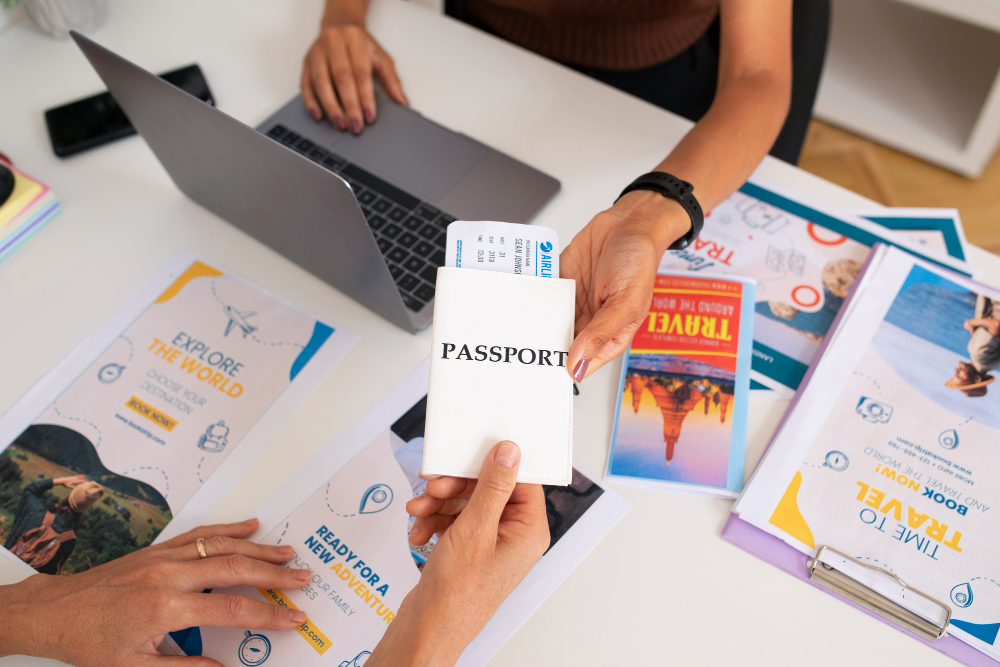Traveling is an exhilarating experience, filled with the promise of adventure, new cultures, and unforgettable memories. However, it’s not without risks. From medical emergencies to lost luggage, travel can sometimes go wrong, and when it does, the costs can be significant. This is where comprehensive travel insurance comes into play. It provides a safety net, ensuring that you’re covered financially against a wide range of potential issues. This guide will delve into why comprehensive travel insurance is essential for your next adventure, the types of coverage it includes, how to choose the best policy, and tips to save money.
Understanding Comprehensive Travel Insurance
What is Comprehensive Travel Insurance?
Comprehensive travel insurance is a type of insurance policy that offers extensive coverage for a variety of travel-related risks. It goes beyond basic travel insurance by covering a wider range of incidents and offering higher coverage limits. This type of insurance typically includes medical emergencies, trip cancellations, travel delays, lost or stolen luggage, and more.
Why You Need Comprehensive Travel Insurance
Financial Protection
Travel can be expensive, and unexpected events can lead to significant financial losses. Comprehensive travel insurance ensures that you are not left out of pocket if things go wrong. It covers medical bills, trip cancellations, and other unforeseen expenses, providing peace of mind.
Medical Emergencies Abroad
Healthcare costs in foreign countries can be exorbitant. If you fall ill or get injured while traveling, comprehensive travel insurance covers medical expenses, including hospitalization and emergency evacuation, ensuring you receive the necessary care without worrying about the cost.
Trip Cancellation and Interruption
Life is unpredictable, and sometimes, you may need to cancel or interrupt your trip due to unforeseen circumstances such as illness, family emergencies, or natural disasters. Comprehensive travel insurance reimburses non-refundable expenses, protecting your investment.
Lost or Stolen Luggage
Losing your luggage can be a nightmare, especially if it contains essential items like your passport, medication, or electronics. Comprehensive travel insurance covers the cost of replacing lost or stolen items, minimizing the inconvenience and expense.
Travel Delays
Travel delays are common and can lead to additional expenses for meals, accommodation, and transportation. Comprehensive travel insurance provides reimbursement for these costs, ensuring you are not left stranded or out of pocket.
Personal Liability
Accidents happen, and if you accidentally cause injury to someone or damage their property while traveling, personal liability coverage protects you from the financial repercussions, covering legal fees and compensation.
Peace of Mind
Knowing that you have comprehensive travel insurance provides peace of mind, allowing you to enjoy your trip without worrying about the potential financial impact of unforeseen events.
Types of Coverage in Comprehensive Travel Insurance
Medical Coverage
Medical coverage is a crucial component of comprehensive travel insurance. It includes:
- Emergency Medical Expenses: Covers the cost of medical treatment for illnesses or injuries sustained during the trip.
- Hospitalization: Pays for hospital stays, surgeries, and other related expenses.
- Medical Evacuation and Repatriation: Covers the cost of emergency evacuation to the nearest adequate medical facility and repatriation to your home country if necessary.
- Dental Emergencies: Provides coverage for emergency dental treatment.
- Pre-Existing Conditions: Some policies offer coverage for pre-existing medical conditions, but this usually requires an additional premium.
Trip Cancellation and Interruption
This coverage protects you against financial losses if you need to cancel or interrupt your trip due to covered reasons such as:
- Illness or Injury: If you or a traveling companion falls ill or gets injured before or during the trip.
- Family Emergencies: Including the death or serious illness of a family member.
- Natural Disasters: Such as hurricanes, earthquakes, or floods that make travel impossible or dangerous.
- Travel Advisories: Issued by government authorities advising against travel to your destination.
Travel Delays
Travel delay coverage reimburses additional expenses incurred due to delays caused by:
- Weather Conditions: Such as storms or hurricanes that disrupt travel.
- Mechanical Issues: Problems with the aircraft or other transport means.
- Strikes or Civil Unrest: That cause significant travel disruptions.
- Missed Connections: Leading to additional expenses for accommodation and meals.
Lost or Stolen Baggage
This coverage provides reimbursement for:
- Lost Luggage: If your luggage is lost by the airline or other transport provider.
- Stolen Belongings: If your belongings are stolen during the trip.
- Delayed Baggage: Covers the cost of essential items if your baggage is delayed for a significant period.
Personal Liability
Personal liability coverage protects you if you are legally liable for causing injury to someone or damaging their property. It covers:
- Legal Fees: Costs associated with defending yourself in court.
- Compensation: Payments to the injured party or for property damage.
Accidental Death and Dismemberment
This coverage provides a lump sum payment in the event of:
- Accidental Death: If you die as a result of an accident during the trip.
- Dismemberment: If you lose a limb, sight, or suffer other serious injuries.
How to Choose the Best Comprehensive Travel Insurance
Assess Your Needs
Before purchasing travel insurance, assess your needs based on:
- Destination: Some destinations have higher medical costs or greater risks.
- Trip Duration: Longer trips may require more extensive coverage.
- Activities: If you plan to engage in high-risk activities, ensure they are covered.
- Health Condition: Consider your health and any pre-existing conditions.
Compare Multiple Policies
Use comparison websites to compare policies from different providers. Pay attention to:
- Coverage Limits: Ensure the policy offers adequate coverage limits for your needs.
- Exclusions: Understand what is not covered by the policy.
- Premiums: Compare the cost of premiums for similar coverage.
- Customer Reviews: Check reviews to gauge the reliability and customer service of the insurer.
Consider Add-Ons
If the standard policy does not cover all your needs, consider purchasing add-ons such as:
- Adventure Sports Coverage: For activities like skiing, scuba diving, or hiking.
- Pre-Existing Condition Coverage: If you have medical conditions that need coverage.
- Rental Car Coverage: For additional protection if you plan to rent a car.
Check for Discounts
Look for discounts that can lower your premium, such as:
- Multi-Trip Discounts: If you travel frequently.
- Family or Group Discounts: For family or group travel.
- Loyalty Discounts: If you have other policies with the insurer.
Purchase Early
Buy travel insurance as soon as you book your trip to ensure coverage for any unforeseen events that might occur before your departure.
Tips to Save Money on Travel Insurance
Compare Quotes
Always compare quotes from multiple insurers to find the best deal. Use comparison websites for quick and easy comparisons.
Increase Your Deductible
Opting for a higher deductible can lower your premium. Just ensure you can afford to pay the deductible if you need to make a claim.
Opt for Multi-Trip Policies
If you travel frequently, consider an annual multi-trip policy, which can be more cost-effective than buying separate policies for each trip.
Take Advantage of Discounts
Look for available discounts, such as family or group discounts, loyalty discounts, and online purchase discounts.
Tailor Your Coverage
Only pay for the coverage you need. Exclude unnecessary options like rental car insurance if you’re not planning to rent a car.
Bundle Your Policies
If you have other insurance policies (like home or auto insurance) with the same provider, check if they offer discounts for bundling multiple policies.
Check Credit Card Benefits
Some credit cards offer travel insurance as a benefit. Check if your credit card provides this coverage and if it meets your needs.
Avoid Over-Insuring
Accurately assess the value of your belongings and the necessary coverage limits. Over-insuring can lead to higher premiums without additional benefits.
Making the Most of Your Travel Insurance
Keep Documentation Handy
Carry a copy of your insurance policy, including emergency contact numbers, with you while traveling. This ensures you can quickly access information in case of an emergency.
Know the Claim Process
Familiarize yourself with the claim process, including what documentation you need and how to file a claim. This can expedite the process if you need to make a claim.
Document Everything
In case of an incident, document everything thoroughly. Keep receipts, medical reports, police reports, and any other relevant documentation to support your claim.
Contact Your Insurer Immediately
In the event of an emergency, contact your insurer as soon as possible. They can provide guidance on what steps to take and help ensure you follow the correct procedures.
Follow Local Laws
Abide by local laws and regulations during your trip. Engaging in illegal activities can void your travel insurance coverage.
Conclusion
Comprehensive travel insurance is an essential part of planning any trip. It provides a safety net that protects you from financial losses due to medical emergencies, trip cancellations, lost or stolen luggage, travel delays, and personal liability. By understanding the different types of coverage offered and carefully selecting a policy that meets your needs, you can travel with peace of mind, knowing that you are protected against unforeseen events.


















